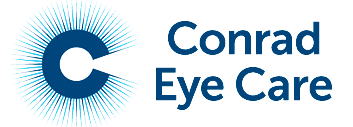Paediatric Ophthalmology
Safeguard your little one’s vision by attending an optometrist appointment early to ensure their developmental vision is on track and to detect any ophthalmic issues.
If your Optometrist, General Practitioner or Specialist recommends your little one be seen by an ophthalmologist, Dr Diana Conrad is always happy to see babies and children for most ophthalmic related concerns from sore red eyes to squints, lazy eyes, and paediatric myopia.
Squints or strabismus
This occurs when both eyes are not looking in the same direction. The difference could be almost unnoticeable to very obvious. Some babies are born this way while others can develop up until 6 years of age.
The most common cause is from neurological or anatomical problems that interfere with the control and function of the eyes. It is also very common to run in families. Younger children who are not talking may tilt their heads, squint or walk into things while older children may complain of double vision or having a difficult time in class seeing the board.
Regular eye exams are the best way to detect early and start treatment. Treatment usually involves glasses, patches, eye drops or surgery to align the eyes.
Lazy eye (Amblyopia)
Lazy eye is often confused with a squint. However, a squint can cause a lazy eye. Amblyopia is usually due to the lack of development of clear vision in one or both eyes and over time the brain starts to favour the eye with the better vision and ignores the eye/s with the blurry vision. A baby could be born with amblyopia or develop it later. Other causes of amblyopia are severe far-sightedness, near-sightedness, or astigmatism.
Most toddlers or babies are unaware that they are seeing the world differently, so it is very important to have your little one’s vision inspected by an optometrist when they are as young as 6 to 12 months old.
Paediatric myopia (near-sightedness)
Your child may complain of blurry distance vision or as the vision slowly deteriorates, they may not notice at all. During the age of tablets and phones it is said that paediatric myopia is becoming more frequent. While this could be true or false, it cannot hurt to reduce screen time. Having a family history of myopia is also a risk factor. The good news is that myopia progression can be slowed by limiting near tasks and increasing time spent outdoors. Progressive/bifocal glasses, eye drops or multifocal contact lenses could also be recommended. Regular eye exams are the best way to detect for progressive myopia.
For a consultation, diagnosis and further advice on any of the above, please contact us on (07) 3217 7399 to make an appointment with Dr Conrad.
